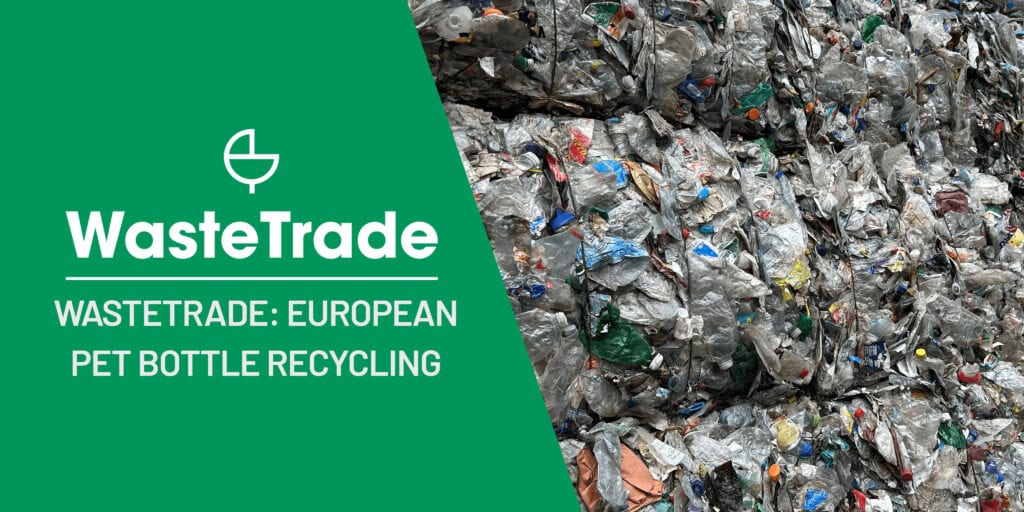Feb 13, 2024
Navigating the Challenges of PET Bottle Recycling | EU Single Use Plastic Directive

EU PET Bottle Recycling
The countdown to meeting the European Union’s Single Use Plastic (SUP) Directive targets is on, with less than two years remaining to transform the PET bottle recycling landscape. Italy, along with other EU member states, is under pressure to drastically improve its collection and recycling systems. The directive mandates that by 2025, at least 77% of post-consumer PET bottles must be collected, a figure that must rise to 90% by 2029. Additionally, a significant shift towards sustainability is mandated for manufacturers, who are required to incorporate at least 25% recycled PET (RPET) in their products by 2025, increasing to 30% by 2030. These targets are not just numbers; they represent a crucial pivot towards environmental stewardship and resource conservation.
PET Collection and Recycling
The urgency of these goals was the focal point of the “Let’s collect the future: selective collection and European targets” press conference, organised by Coripet. This gathering brought together environmental leaders, policymakers, and industry experts to deliberate on Italy’s path forward in the recycling domain. The presence of esteemed figures such as Prof. Pichetto Fratin, Minister for the Environment and Energy Security, and Dr. Corrado Dentis, President of Coripet, underscored the national commitment to achieving these recycling milestones. Coripet’s initiative, which has seen the installation of eco-compactors across Italy, exemplifies the innovative approaches being undertaken to enhance selective collection and recycling rates.
Progress in PET Recycling
The strides made by Coripet in the installation of eco-compactors are commendable, with over 1206 units operational as of 2023, facilitating the recycling of more than 141 million bottles. This achievement represents a doubling in recycling efforts compared to previous years, a testament to the effectiveness of these machines and the public’s growing engagement with recycling practices. Dr. Dentis’s vision of expanding this network to 5,000 eco-compactors illustrates a bold step towards increasing Italy’s recycling capacity and efficiency. However, the challenge extends beyond collection; the integration of food-grade RPET into the production cycle remains a critical objective. With current usage at a mere 9%, there is a significant opportunity to grow this market and surpass the 25% recycled content target for food packaging by 2025.
WasteTrade’s Role in Advancing EU Recycling Rates
In this transformative era, WasteTrade emerges as a vital ally in the quest for sustainable waste management and recycling. By bridging the gap between waste generators, recyclers, and manufacturers, WasteTrade facilitates a global marketplace that enhances the visibility and accessibility of recyclable materials. This platform not only supports the objectives of the SUP Directive but also champions the broader goals of environmental sustainability and the circular economy. WasteTrade’s commitment to providing a transparent, compliant, and profitable avenue for the trading of waste commodities aligns perfectly with the needs of the recycling industry, offering a robust solution to the challenges posed by the directive.
Advocating for a Sustainable Future
WasteTrade’s advocacy for recycling innovation extends beyond mere compliance with legislative targets. It embodies a vision for a world where waste is not seen as an endpoint but as the beginning of a new cycle of use. Through its support for recyclers and the promotion of innovative recycling technologies, WasteTrade is at the forefront of a movement towards a more sustainable and environmentally conscious global economy. The platform’s efforts to increase the use of RPET in manufacturing not only contribute to reducing plastic waste but also promote resource efficiency and sustainability across industries.
The journey towards meeting and exceeding the SUP Directive’s targets for PET bottle recycling is a complex but achievable mission. It requires the collective effort of governments, industry stakeholders, and platforms like WasteTrade, all working together towards a common goal. By embracing innovative collection methods, fostering the use of recycled materials in production, and supporting the recycling industry, we can make significant strides towards a greener, more sustainable future. Together, we have the power to transform the landscape of waste management and recycling, paving the way for a circular economy that benefits both the planet and its inhabitants.





